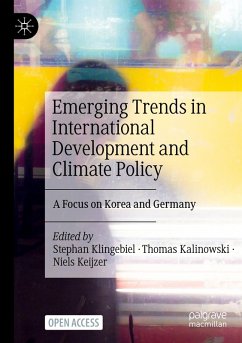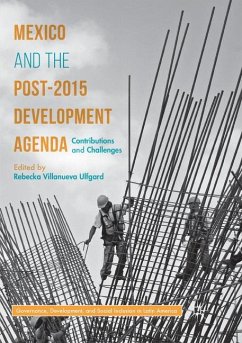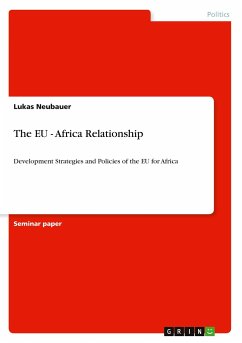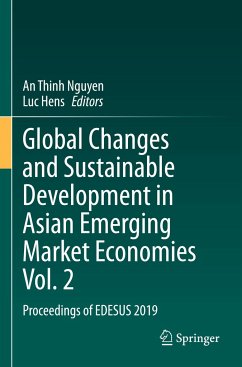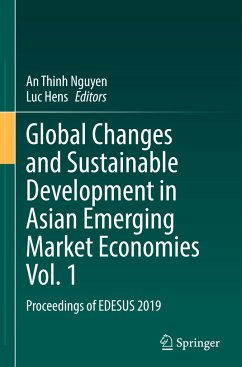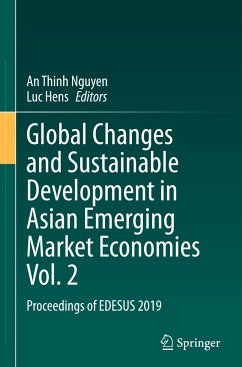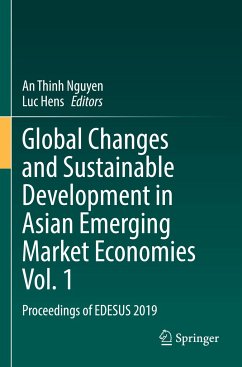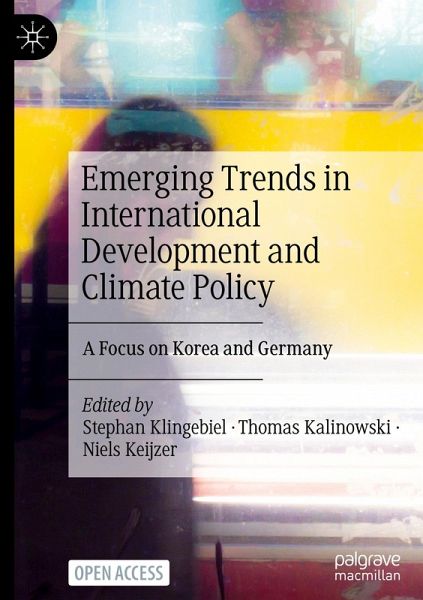
Emerging Trends in International Development and Climate Policy
A Focus on Korea and Germany
Herausgegeben: Klingebiel, Stephan; Kalinowski, Thomas; Keijzer, Niels
Versandkostenfrei!
Versandfertig in 6-10 Tagen
38,99 €
inkl. MwSt.

PAYBACK Punkte
19 °P sammeln!
This open access book delves into the considerable alignment of global sustainable development priorities between Germany and the Republic of Korea (hereafter referred to as Korea), despite their geographical separation. Notably, both nations share a common commitment to development policy and international climate action, an alignment that holds immense potential for enhanced cooperation in today's evolving global landscape.Germany's historical role as a founding member of the international development cooperation system juxtaposes with Korea's more recent entry into the Organisation for Econ...
This open access book delves into the considerable alignment of global sustainable development priorities between Germany and the Republic of Korea (hereafter referred to as Korea), despite their geographical separation. Notably, both nations share a common commitment to development policy and international climate action, an alignment that holds immense potential for enhanced cooperation in today's evolving global landscape.
Germany's historical role as a founding member of the international development cooperation system juxtaposes with Korea's more recent entry into the Organisation for Economic Co-operation and Development (OECD) and its Development Assistance Committee (DAC) in 2010. Korea has transformed from a significant development assistance recipient to an active provider, a transition mirrored in its engagement in international climate finance.
Within this dynamic context, the book thoroughly examines key aspects such as the evolving development policy profiles of Germany and Korea, their roles in international organizations, and their shared commitment to international climate policies. It also explores avenues for deeper collaboration between these like-minded partners, all against the backdrop of an evolving geopolitical focus, including the new Indo-Pacific emphasis.
Germany's historical role as a founding member of the international development cooperation system juxtaposes with Korea's more recent entry into the Organisation for Economic Co-operation and Development (OECD) and its Development Assistance Committee (DAC) in 2010. Korea has transformed from a significant development assistance recipient to an active provider, a transition mirrored in its engagement in international climate finance.
Within this dynamic context, the book thoroughly examines key aspects such as the evolving development policy profiles of Germany and Korea, their roles in international organizations, and their shared commitment to international climate policies. It also explores avenues for deeper collaboration between these like-minded partners, all against the backdrop of an evolving geopolitical focus, including the new Indo-Pacific emphasis.



